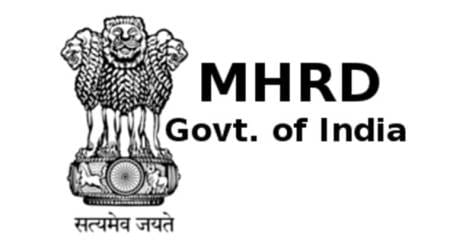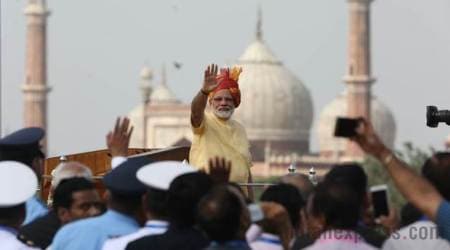 Prime Minister Narendra Modi delivers his fourth Independence Day address at Red Fort, New Delhi. Express Photo/Tashi Tobgyal
Prime Minister Narendra Modi delivers his fourth Independence Day address at Red Fort, New Delhi. Express Photo/Tashi Tobgyal
Prime Minister Narendra Modi was at his rhetorical best when he delivered his fourth address to the nation on India’s 71st Independence Day from the ramparts of the Delhi’s Red Fort. He listed out his government’s achievements over the past three years and, interestingly, promised to make a new India by 2022. In less than two years, Modi’s term ends and general election is due in 2019. Not surprisingly, Modi’s address had the trappings of a poll campaign speech.
Though he touched upon a gamut of issues, including reviving the economy, generating employment, building infrastructure, Kashmir, internal security and violence in the name of faith, it was corruption and the steps he has undertaken to make the country bhrashtachar-mukt that got maximum attention. He also gave a clear idea of the audience he intends to woo. The poor, women, youth, soldiers and the middle class were spoken to and about, and schemes and initiatives that targeted them found special mention in the prime minister’s speech. He unleashed a torrent of data to support his claims that India has seen a dramatic transformation under his watch.
Demonetisation, he said, occupied prime place in the battle against black money. He offered figures to claim that a large sum of money that was stashed away has now come into the banking system. Banks are now flush with cash and ready to lend, including to youth who need not produce any guarantee to seek loans. Many more persons have come under the income tax network, which will now seek out people who have money in excess of their means. Benami wealth — Rs 8,000 crore was the figure he gave — has also been seized. GST too was highlighted as a transformative instrument that will improve efficiency and change lives. Governance, the PM recognises, is likely to a key factor that will influence people in elections. He talked at length how he has simplified the governance process and improved the lot of the poor and disempowered.
Two sensitive issues found reference in Modi’s speech. He was emphatic in denouncing violence in the name of faith and said the land of Gandhi and Buddha will reject himsa in the name of aastha. He, of course, did not mention the political forces driving the lynchings, but nevertheless spelt out his disapproval of the violence. The restive situation in Kashmir too found a fleeting mention. Gaali (abuse) or goli (bullet) can’t resolve the Kashmir issue, but people will need to sit and talk, he said. He invited everyone to join the political mainstream. This hints at a departure from the hardline the Modi government has pursued in the state for the past many months.
A glaring omission in the PM’s speech was the absence of any reference to the neighbourhood. Considering that Pakistan had found extraordinary attention in his previous speeches, many expected him to refer to India’s relations with China, considering the Doklam face-off. He didn’t. There was not even a hint on how he perceived the evolving global dynamic, especially the rise of an assertive China. For a PM who has invested significantly in his foreign outreach, the silence is, least to say, intriguing.
Finally, Modi’s call was to revive the spirit of the Quit India movement —he referred to its 75th anniversary — that forced the British leave India five years later. He drew from Hindu mythology — for instance, Krishna lifting the Govardhana — to remind the nation that unleashing the collective energy and channelising social will are necessary to build a divya, bhavya Bharat. Unlike in the past, there was no tone of triumphalism in the PM’s address; in fact, a layer of sobriety ran through it as he pitched his gains to the nation, now reasonably familiar with his words and deeds.

